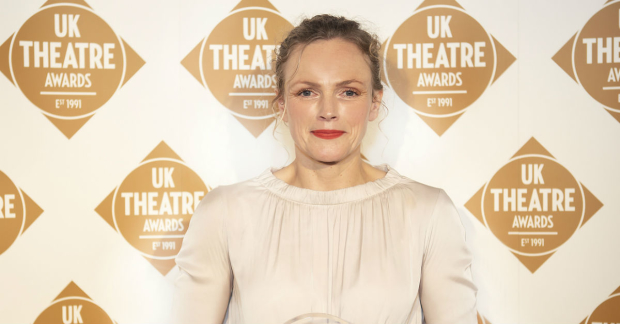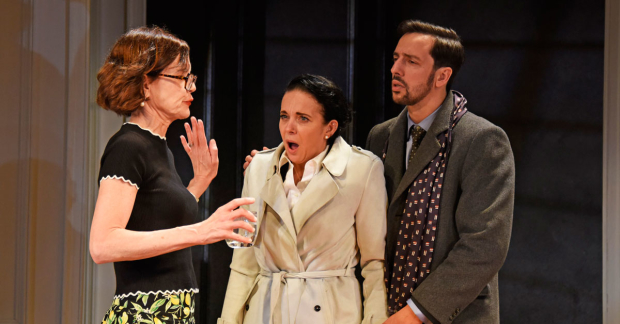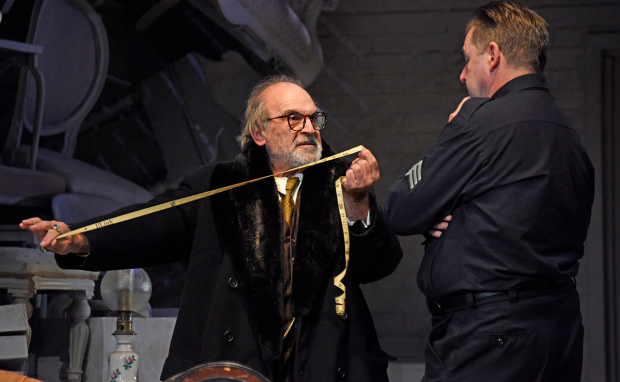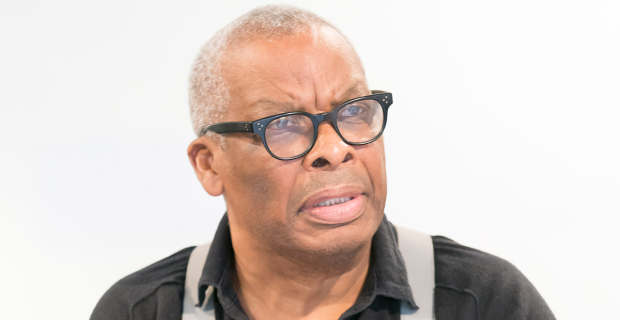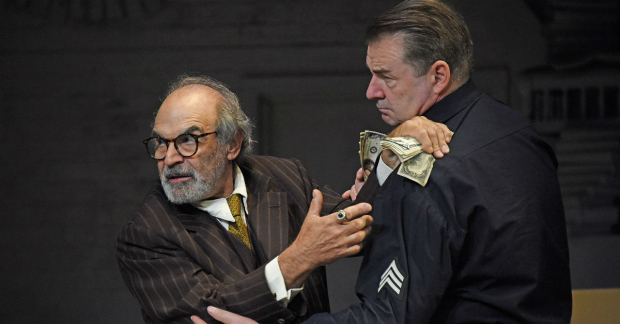Review: In Praise of Love (Theatre Royal Bath)
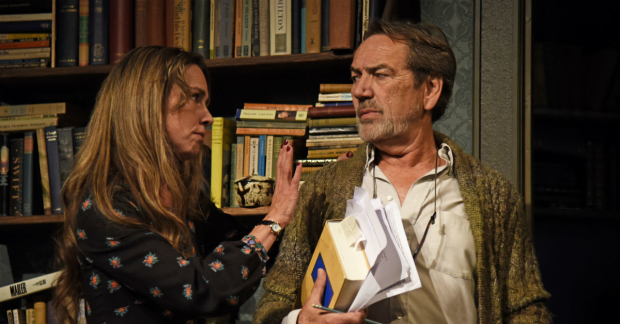
© Nobby Clark
The Bath summer season turns autumnal in more ways than one in the final show of their 2018 slate, Terence Rattigan's In Praise Of Love. If the skies are greying and the temperature dropping outside, Rattigan's penultimate piece, written just after he received a terminal leukaemia diagnosis, also has the feel of a dying ember.
Inspired by his friend Rex Harrison's decision in the late 1950s to not inform his wife Kay Kendall of her own terminal diagnosis, Rattigan's piece takes us into the home of the acerbic ‘great' literary critic Sebastian Cruttwell and his Eastern European immigrant wife Lydia. Both are aware of the terminal diagnosis Lydia's doctor has pronounced "It may be two years, it could be a couple of months", neither wants to tell the other to try to spare them the pain of knowing. It could almost be an Ayckbourn farce if the subject matter wasn't so exquisitely painful. The line between tragedy and farce to paraphrase Erma Bombeck, is a thin line indeed.
Rattigan's renaissance has been made complete over the past couple of years with revelatory revivals of After the Dance, Flare Path and The Deep Blue Sea, yet In Praise Of Love, although it shares a similar style, in feelings left unsaid, feels dramatically inert at points. Sebastian and Lydia may share a deep love, one that goes much deeper than the bon mots and diffident throw away lines the characters' habitually chuck at each other, but Rattigan never gives them much to chew on together. Their feelings are only revealed in discussions with a third character, the hugely successful novelist Mark, who holds a flame for Lydia and a close friendship with Sebastian. Drama is by and large made in the moments of reveal and it takes the best sort of writing to keep the momentum up if you don't provide those cathartic moments. The writing is not quite powerful enough here and so the tragedy does not kick in as it should.
It also suffers somewhat from characters that you don't care enough about. It may be a sign of the times that a literary critic that swans to Fleet Street in a chauffeured car and whose major problems seems to be turning on his side lamp is not the most relatable of characters. You don't need to like your protagonist, but you do need to care to make drama work and for all the natural charm of Robert Lindsay's Sebastian, you only really begin to feel, deep into the second half when he relives the tale of Lydia's escape from thrice conquered Estonia during the Second World War. This speech is by far the high point of the evening and one delivered in spellbinding fashion by the ever magnetic Lindsay.
Jonathan Church's production is lovingly realised if not always propelling, though it counts in its favour an elegant performance from Tara Fitzgerald as Lydia. She pulls off the hybrid accent of Eastern European and thirty years of literary London life, and you can feel the strength of a woman who has seen enough for infinite lifetimes, even as she wafts around in a number of discerning gowns in Tim Hatley's aesthetically detailed, book-laden 70s townhouse set.
Julian Wadham as the novelist friend stuck in the centre of the lie and Christopher Bonwell as the son, excited to see his first scripted drama be put on by the BBC even if it is opposite the football, make up the four-strong team. Their work is all solid but it's all in thrall to a work that doesn't hold that electricity that so many Rattigan pieces seem to have generated this decade. Tastefully done it may be, but it's a work that will most likely fade gently from the memory rather than go out in a blaze of glory.



